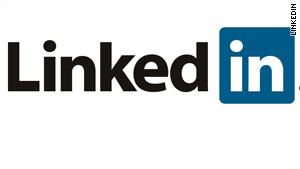Square, a mobile payment technology company founded in 2009 by Twitter co-founder Jack Dorsey, has received an undisclosed investment by credit giant Visa. According to Square CEO Keith Rabois, Visa will take a "strategic adviser" role in Square's development, which could include assisting with a broad expansion into international markets.source - http://news.yahoo.com/s/yblog_technews/20110427/tc_yblog_technews/visa-invests-in-square
Thursday 28 April 2011
Visa backs mobile payment startup Square
Wednesday 27 April 2011
Friday 22 April 2011
Social Networks Are 'Huge Boondoggle for Bad Guys'
You've gotta love social networking. It lets us make zillions of "friends" all over the world, it's making corporations scramble to meet customer requirements, and it's made Mark Zuckerberg and a few other people very, very rich. Unfortunately, cybercriminals are among those other people enriched by social networking.source - http://www.technewsworld.com/story/Social-Networks-Are-Huge-Boondoggle-for-Bad-Guys-72316.html
Hunting for Gaps
ETH Zurich researchers have developed a cognitive model that explains how pedestrians move in a crowd. The model could be used to prevent crowd disasters as well as to develop new navigation approaches for robotics and better architectural designs. The model assumes that pedestrians want to minimize the coverage of their vision field while trying to keep away from other pedestrians. It also assumes that pedestrians are seeking gaps and perceive groups as a whole. The model enables researchers to simulate the behavior of individuals and crowds, and demonstrates that crowds self-organize. The project is part of a larger FuturICT EU flagship project, led by ETH Zurich's Dirk Helbing. "One of the goals of the project is to prevent disasters through the use of new computer technologies and by learning to better understand the complexity of social systems," Helbing says.source - http://www.physorg.com/news/2011-04-site-crowd-sourcing-internet.html
Thursday 21 April 2011
Strong Protection for Weak Passwords
Max Planck Institute researchers have developed a password protection system based on a combination of characters and a Completely Automated Public Turing test to tell Computers and Humans Apart (CAPTCHA). The researchers also used mathematical techniques from the physics of critical phenomena to make the CAPTCHA safer. "We thus make the password protection both more effective and simpler," says Max Planck researcher Konstantin Kladko. The researchers used the CAPTCHA in the image, which can only be solved by humans, as the actual password. They further encrypted the password using a combination of characters. The team then let the system develop chaotically for a period of time, resulting in an image that no longer contains a recognizable word. Although the new system only requires relatively weak passwords, the real strength is in the CAPTCHA's encrypted password, according to the researchers.source - http://www.mpg.de/2823498/effective_password_protection?filter_order=L
Friday 15 April 2011
Wednesday 13 April 2011
Friday 8 April 2011
DOJ Approves Google’s $700M ITA Deal, With Conditions
Google has been embroiled in a investigation by the Justice Department over the search giant’s acquisition of the travel software company. Despite intense scrutiny and opposition from competitors, the deal was finally proved. Of course, the DOJ has a few conditionssource - http://techcrunch.com/2011/04/08/breaking-doj-approves-googles-ita-deal-with-conditions/
LinkedIn announced a new platform Wednesday for its business-focused social networking site -- offering websites and developers easy tools to embed "recommend" buttons, company-profile boxes and contact widgets on third-party websites -- as well as a way to log in to other sites using LinkedInsource - http://www.cnn.com/2011/TECH/social.media/04/07/linkedin.facebook.wired/index.html
Subscribe to:
Posts (Atom)



